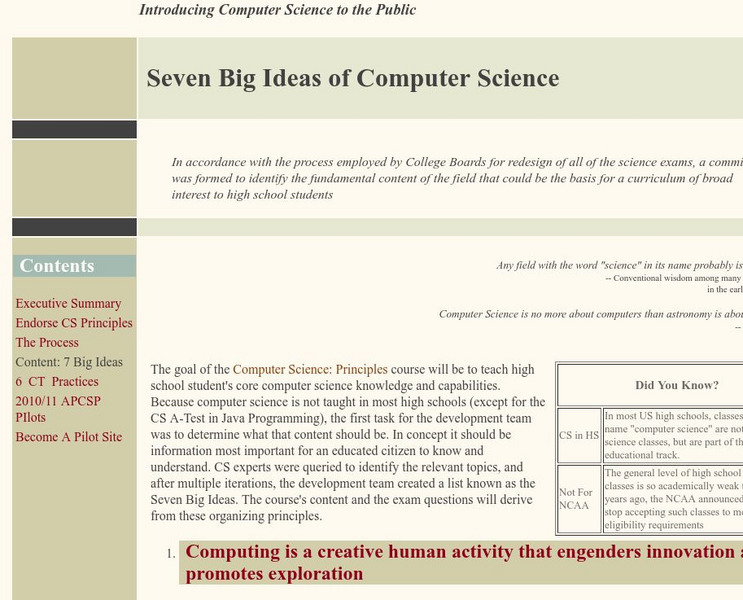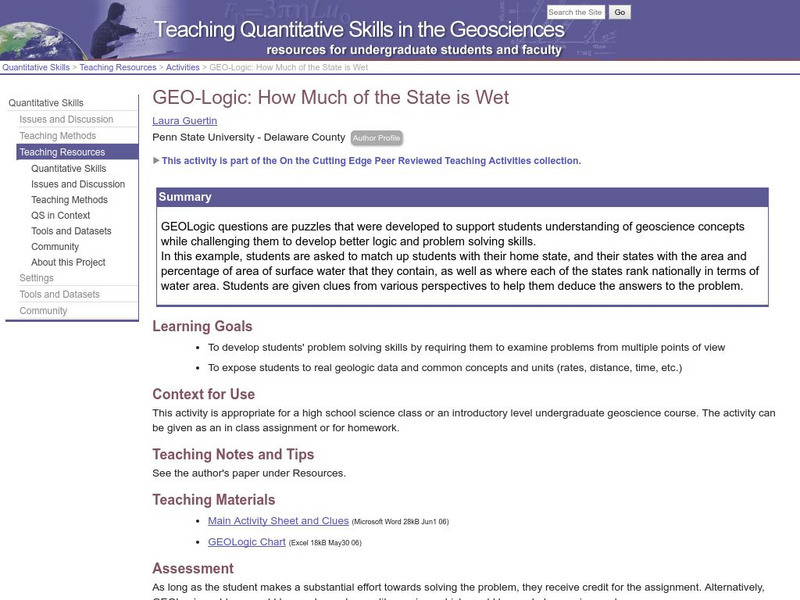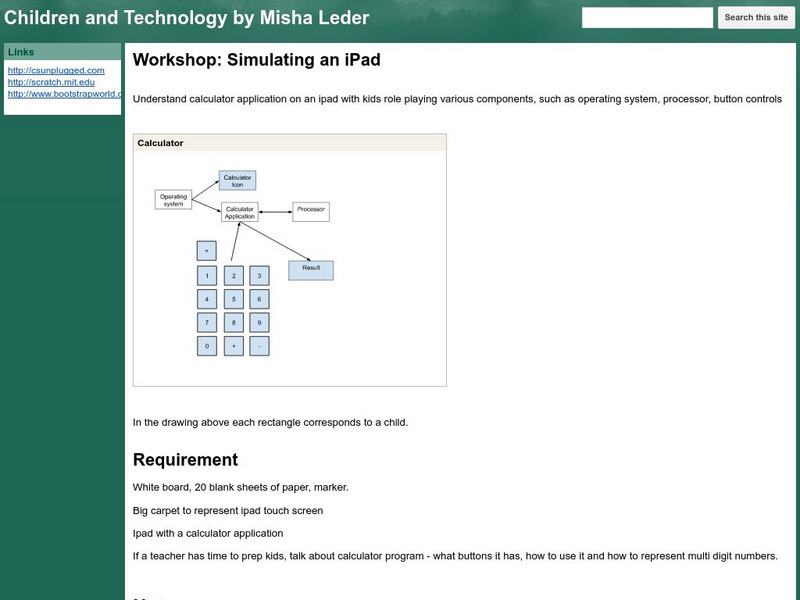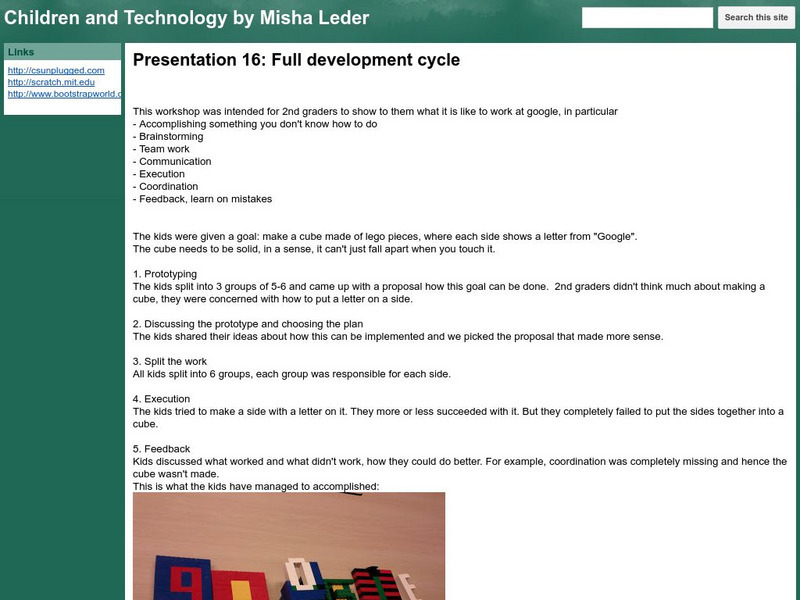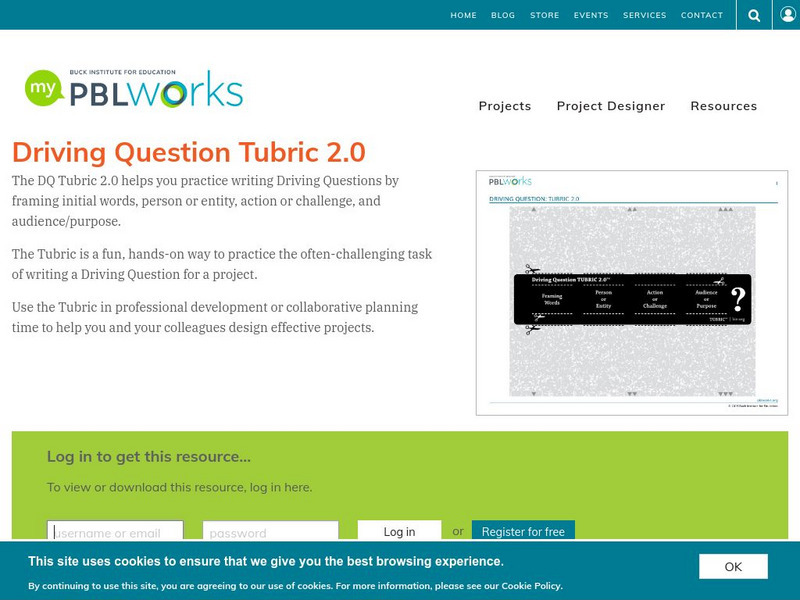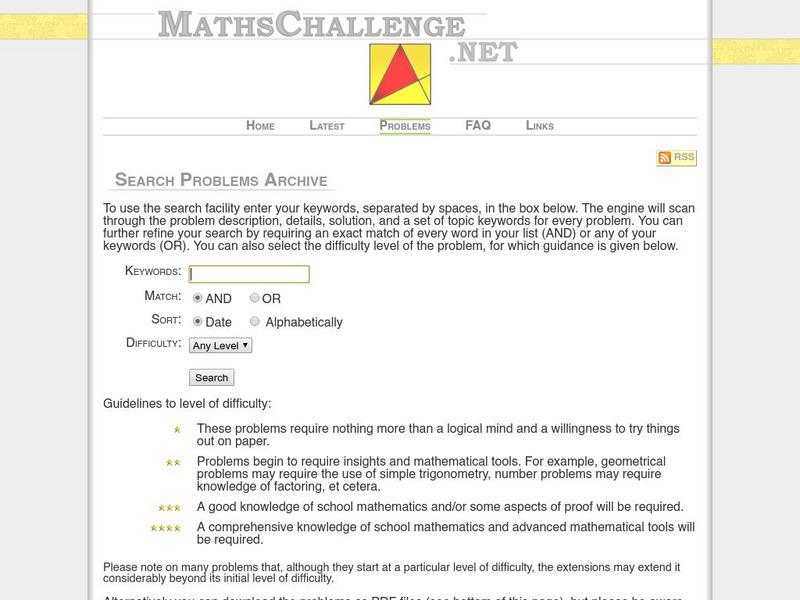Hi, what do you want to do?
Yale University
Detective Fiction: Focus on Critical Thinking
Through the use of reading crime fiction, this lesson plan helps to refine critical thinking skills and problem solving strategies which are important for the development of 21st century skills.
AdLit
Ad lit.org: Critical Thinking: Why Is It So Hard to Teach?
Learning critical thinking skills can only take a student so far. Critical thinking depends on knowing relevant content very well and thinking about it, repeatedly. Here are five strategies, consistent with the research, to help bring...
AdLit
Ad lit.org: Cross Disciplinary Proficiencies: American Diploma Project Benchmarks
Students must graduate from high school with not only a firm foundation in mathematics and English, but also with the ability to approach with confidence new and unfamiliar tasks and challenges in college, the workplace and life....
Shodor Education Foundation
Shodor Interactivate: Lesson: Angles
This upper elementary and middle school lesson plan introduces the concept of acute, obtuse and right angles. Also, as the lesson plan proceeds vertical, adjacent, alternate interior and alternate exterior angles are explored. Plenty of...
Scholastic
Scholastic: So That's the Reason! [Pdf]
Simple, one-page printable instructional activity to introduce your students to cause and effect. Gives one set example, and has space at the bottom to apply to any story you read.
University of Utah
University of Utah: History of Psychology: More on Logic
Brief overview of the definitions of 'inductive' versus 'deductive' reasoning.
University of Washington
University of Washington: Cs: Six Computational Thinking Practices
Underpinning the study of computer science are these six computational thinking practices. These practices are the kinds of activities computer scientists use.
University of Washington
University of Washington: Cs: Seven Big Ideas of Computer Science
An overview of the seven fundamental principles which make up the content of computer science.
Science Education Resource Center at Carleton College
Serc: Investigating Isotopes and Average Atomic Mass Using Pennies
In this activity, students apply what they have learned about weighted averages, isotopes, and systems of equations to a new situation - coins in a sealed container. They learn some historical information regarding the composition of...
Science Education Resource Center at Carleton College
Serc: Geo Logic: How Much of the State Is Wet
Using investigation and inquiry skills, young scholars match classmates with their home state, and their states with the area and percentage of area of surface water that they contain, as well as where each of the states rank nationally...
Live Wire Media
Good Character: The Socratic Approach to Character Education
A how-to article that illustrates how teachers can educate students about making choices that are consistent with their ethical values. A comprehensive plan for using the venerable Socratic method to reinforce critical-thinking skills by...
Curated OER
Google for Education: Children and Technology: Simulating a Computer
Students play the main computer components like a CPU, mouse, or IO controller to simulate calculator application by moving a mouse, synchronizing it with the mouse pointer on the screen and sending request to the processor.
Curated OER
Google for Education: Children and Technology: Simulating an I Pad
Experience being a button on a touch screen, feel the power and control of an operating system, be as smart as a processor. During this activity, students simulate a calculator application.
Curated OER
Google for Education: Children and Technology: Full Development Cycle
Experience what it's like to work in the field of technology, and take on something never done before. Brainstorm, prototype, plan, implement, work in a team, coordinate between teams, learn from failures or enjoy a success.
Buck Institute
Pbl Works: Driving Question Tubric 2.0
[Free Registration/Login Required] The Driving Question Tubric 2.0 helps with practice in writing Driving Questions by framing initial words, person or entity, action or challenge, and audience/purpose. It is a fun, hands-on way to...
Maths Challenge
Maths challenge.net: Problem Solving Database
Need some challenging problem-solving work for your students in the following areas: Discrete, Geometry, Numbers, and Code Breaking? This is the place for an enormous database of problems aimed at high school age students. They are...
TED Talks
Ted: Ted Ed: Can You Solve the Prisoner Boxes Riddle?
Your favorite band is great at playing music but not so great at being organized. They keep misplacing their instrucments on tour.
TED Talks
Ted: Ted Ed: Would You Sacrafice One Person to Save Five?
Imagine you are watching a runaway trolley barreling down the tracks.
TED Talks
Ted: Ted Ed: Toward a Science of Simplicity
Simplicity: We know it when we see it- but what is it, exactly? In this funny, philosophical talk, George Whitesides chisels out an answer. [19:05]
PBS
Pbs Mathline Lesson Plan: Mirror, Mirror [Pdf]
The goal of this PBS lesson is for students to apply spatial reasoning, problem solving, and critical thinking skills to assess which regular polygons will tessellate. A detailed lesson plan that includes related worksheets, lesson...
Museum of Science
Museum of Science and Industry: Online Science: Activities: Build a Wind Turbine
Step-by-step instructions, with photos, of how to construct and test a wind turbine that produces energy. This experiment does require preparation as it uses PVC pipes, a small motor, and a multimeter, for example.
PBS
Pbs Teachers: Avoiding Armageddon: Laws of Disarmament and Nonproliferation
A lesson plan for learning about nuclear weapons and nonproliferation agreements. Takes young scholars through the process of comparing and contrasting various treaties and of evaluating their relative successes and failures. Includes a...
PBS
Pbs: Black Kingdoms of the Nile
A geometry instructional activity that examines the history and structure of ancient pyramids and engages students in constructing pyramid models. A comprehensive instructional activity that considers students with diverse learning...
PBS
Pbs: Culture Shock: Huck Finn in Context
This site features information on themes from Huck Finn. You will find activities and discussion questions to accompany the different sections.






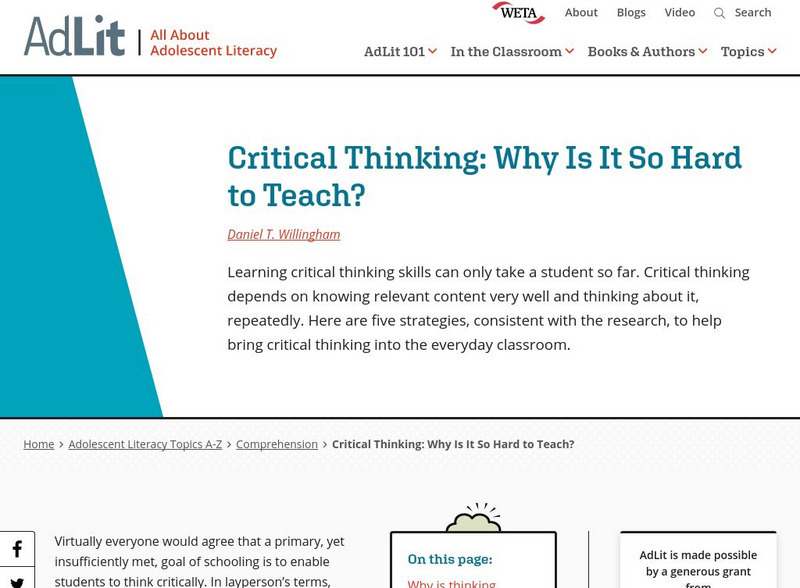

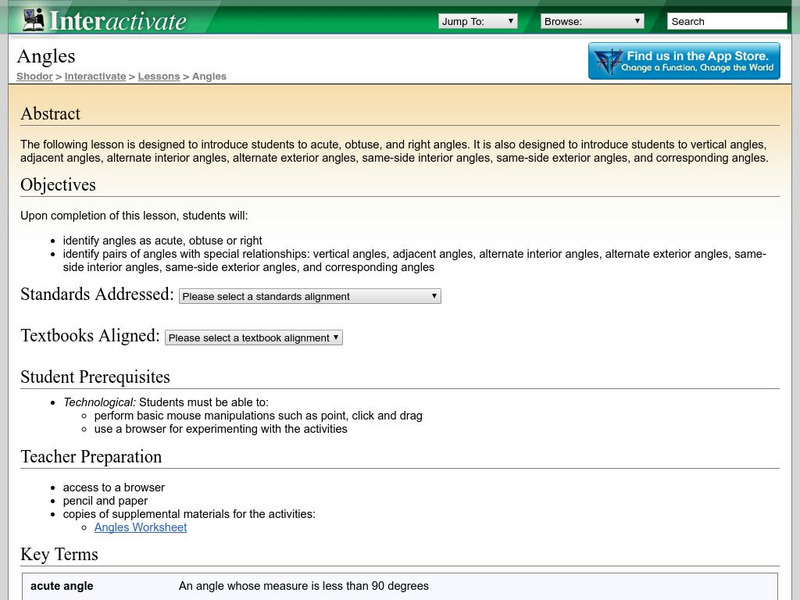
![Scholastic: So That's the Reason! [Pdf] Unknown Type Scholastic: So That's the Reason! [Pdf] Unknown Type](https://content.lessonplanet.com/knovation/original/32238-436f863b7c91b994bd9fe2e7c4a03769.jpg?1661264711)

